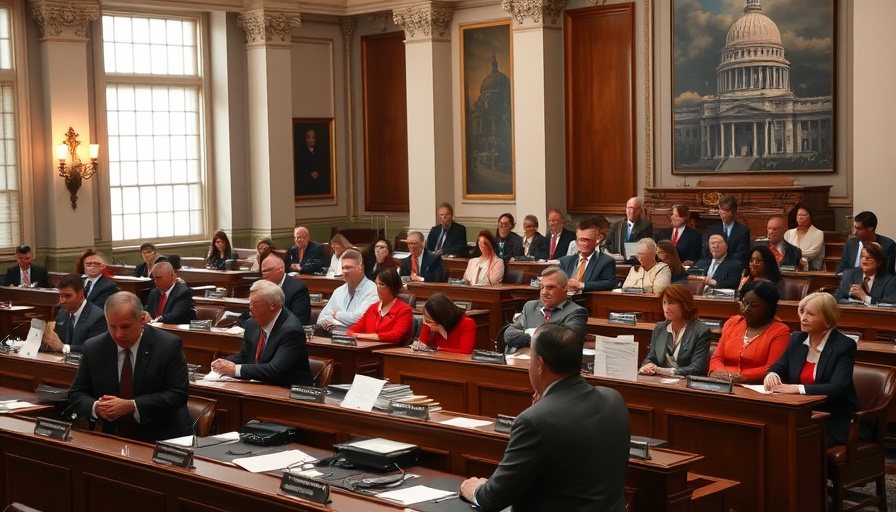
The Disappearance of Crucial Climate Reports
In a move that has alarmed scientists and policymakers alike, the U.S. national climate assessments have seemingly vanished from government websites, making it increasingly difficult for local and state governments, as well as the general public, to comprehend the dangers of a warming planet. Reports that have dire relevance to many Americans, particularly those living in vulnerable areas, are no longer easily accessible. This loss is seen as particularly egregious because these assessments are crucial for formulating effective strategies against climate impacts.
The Ripple Effects on Local Governance
Not only do these assessments provide data, but they also guide critical decision-making at various governmental levels. Experts have voiced concern that this loss of access could hinder policy developments that help communities prepare for climate-related challenges. For instance, climate scientist Kathy Jacobs emphasized how instrumental the 2014 report was in informing local officials on whether to elevate roads or create seawalls to counter rising seas. Without these assessments, such vital decisions might be delayed or made without sufficient data.
Experts Weigh In: The Importance of Accessible Information
Various scientists, including Harvard's John Holdren and Texas Tech's Katharine Hayhoe, expressed their fears that the absence of these reports will increase the vulnerability of already at-risk communities, including minorities and Native Americans. The critical insights provided by these assessments, which highlight regional vulnerabilities, are now scattered or locked away in NOAA's library. Holdren, reflecting on the significance of these documents, noted that many local officials previously relied heavily on the reports for key infrastructure decisions.
Historical Context: Legal Mandates vs. Current Actions
The U.S. Global Change Research Act mandates that national climate assessments be produced every four years. The most recent report issued in 2023 contained crucial findings about how climate change affects health and economy nationwide. Yet, the Trump administration's abrupt suspension of contracts for the next assessment has raised eyebrows about the intentional disappearance of crucial scientific data.
Future Implications: What Lies Ahead?
As the discourse on climate change grows ever more urgent, the potential ramifications of this information black hole are profound. With communities being left in the dark, there's a palpable risk that localized strategies to combat climate impacts will falter. If this trend continues, it may spark a significant mobilization among citizens who feel their access to critical data has been compromised, fueling calls for transparency and re-engagement with established scientific protocols.
AI Resources and Other Tools
While traditional resources have drifted away, technology offers potential avenues for accessing essential climate information. Emerging platforms and apps centered around climate science could pop up as innovative solutions for communities in search of reliable data.
Final Thoughts: The Cost of Ignorance
As climate change continues to affect people across America, having the most accurate and up-to-date information is essential. The recent disappearance of the National Climate Assessments raises questions about the accessibility and governance of climate data. The situation calls for heightened public discourse and assertive action from citizens and scientists alike to demand accountability. Thus, if you live in an area particularly vulnerable to climate-related risks, consider advocating for the preservation and restoration of scientific resources that matter.
 Add Row
Add Row  Add
Add 




 Add Row
Add Row  Add
Add 

Write A Comment